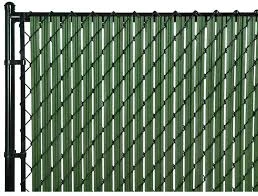The Importance of Thickness in Expanded Metal Mesh
When considering the world of industrial materials, one often overlooks the significance of seemingly simple products like expanded metal mesh. This versatile material is widely used across various industries, ranging from construction to filtration. Among the numerous attributes of expanded metal mesh, thickness plays a crucial role in determining its suitability for different applications. This article delves into the importance of thickness in expanded metal mesh, examining its impact on strength, functionality, and overall performance.
Understanding Expanded Metal Mesh
Expanded metal mesh is created by cutting and stretching a sheet of metal, typically steel or aluminum, to create a mesh-like structure. This process generates holes or openings that can vary in size, depending on the requirements. The final product retains a solid, continuous structure, making it both lightweight and durable. The thickness of the metal used in creating the expanded mesh is a key factor influencing its characteristics.
Strength and Durability
The thickness of expanded metal mesh directly affects its strength and durability. Thicker materials will generally provide higher tensile strength, allowing them to withstand greater loads and resist deformation. This makes thicker expanded metal mesh a popular choice in construction projects, where it can be utilized for safety barriers, walkways, and protective screens.
In contrast, thinner expanded metal mesh is often used when a lighter weight is essential, such as in decorative applications or for use in lightweight structures. However, while thinner mesh may be sufficient in some cases, it may not offer the same level of impact resistance as its thicker counterparts. Therefore, it is crucial to evaluate the specific requirements of a project to determine the appropriate thickness of expanded metal mesh needed.
Functionality and Versatility
expanded metal mesh thickness

Another factor to consider when looking at the thickness of expanded metal mesh is its functionality. Thicker meshes can provide additional stability and support, making them ideal for use in applications such as loading docks, conveyor systems, and industrial flooring. These thicker varieties can help distribute weight evenly, reducing the risk of failure under heavy loads.
On the other hand, thinner expanded metal mesh is often preferred in applications requiring air and light permeability, such as in architectural designs or as shielding for various electronic devices. The larger openings created in thinner meshes can be advantageous in applications that prioritize ventilation or aesthetics. Thus, the thickness serves as a determinant not only of strength but also of the mesh's functional capabilities.
Cost Implications
From a financial perspective, thickness can also affect the cost of expanded metal mesh. Generally, thicker materials tend to be more expensive due to the higher amount of raw material required and the manufacturing processes involved. However, opting for the cheapest option may lead to future expenses if the thinner mesh fails and needs replacement. Investing in thicker mesh that meets the required specifications can save money in the long run by reducing maintenance and replacement costs.
Weight Considerations
The weight of the expanded metal mesh is another consideration linked to its thickness. Thicker meshes are heavier, which may be a disadvantage in applications where weight savings are crucial. For instance, in automotive or aerospace industries, every gram counts, and using thinner expanded metal mesh can contribute to a significant reduction in overall weight. In such cases, the balance between necessary strength and the trade-off of weight must be carefully evaluated.
Conclusion
In conclusion, the thickness of expanded metal mesh is an essential factor influencing its strength, functionality, cost, and weight. Each application has distinct requirements that dictate the appropriate thickness to use. Understanding these implications is vital for engineers, architects, and designers as they select the correct materials for their projects. Ultimately, the right choice of thickness in expanded metal mesh can lead to enhanced performance, greater longevity, and more efficient use of resources. As industries continue to evolve, the demand for customized solutions will likely increase, making informed decisions about the material properties all the more critical.
















